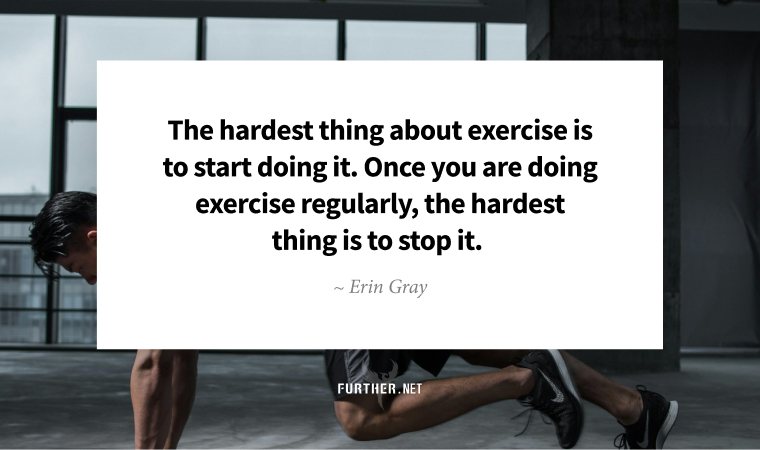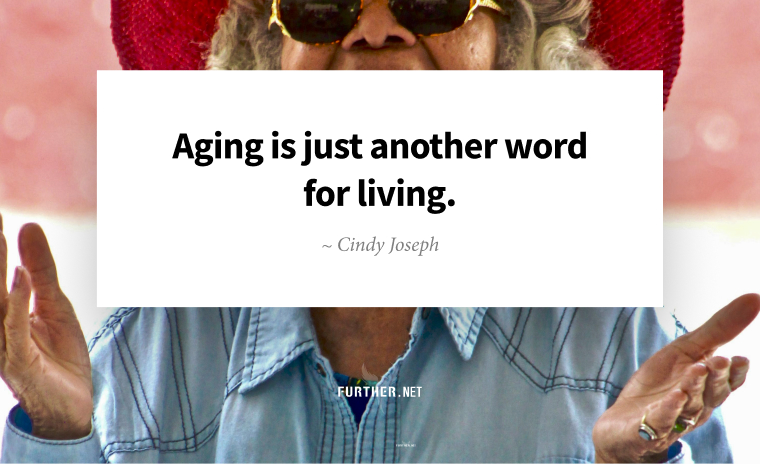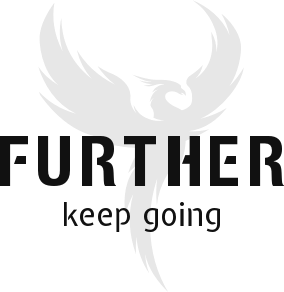Optimize Your Healthspan Without Obsessing 
If you're going to be addicted to something, you can do much worse than exercise. And while a consistent focus on enhancing your fitness is the key to healthy aging, it can become an obsession if you let it. The last year-and-a-half has been my most consistent period of fitness ever, and I can say at this point that it's now just part of my lifestyle. Along the way, I found myself truly interested in optimizing my efforts to the point that it became a serious hobby rather than a chore. Ultimately, though, I've arrived at a place that puts it all in perspective. Fitness is important to me, but I'm not obsessed with achieving superhuman results. I just want to look good and feel good as I try to get the most out of this stage of life. It's ultimately a simple and pragmatic approach to extending my healthy life expectancy, or healthspan. Here are the three key elements that I focus on. 1. Cardio for VO2 Max When people think of cardio, it's usually for weight loss instead of cardiovascular fitness (weird, right?). But you're better off cutting calories if fat loss is your goal, while vigorously moving more has bigger benefits. If you want to be healthy and live a long time, your VO2 Max (how much oxygen your body absorbs) is "the best piece of empirical information we have on health and longevity." This Test Might Be the Best Way to Track Fitness and Longevity (New York Times gift article) 2. Lift for Strength When it comes to lifting weights, there are two broad camps - strength training and body building. While body builders do get stronger, and strength trainers do build bigger muscles, the emphasis on strength is more important than sculpting perfect muscles for functional living as we get older. For a healthy balance of strength and muscle gains, it's important to get in enough volume. Strength training generally focuses on fewer reps and more sets. For people our age who want to not only avoid muscle loss but want to actively gain, more sets is a must. To Build Muscle, It's the Sets That Count (Outside) 3. Eat for Goals Eating nutrient rich whole foods and avoiding ultra-processed junk is a must. Beyond that, how much you eat depends on your goals. To lose fat, you have to be in a caloric deficit - and depending on hormonal factors, that can be more challenging than it sounds. You should try to lose as much excess fat as possible before trying to add muscle, or combine the two with recomposition. To gain muscle, I've found it to be more challenging to eat enough rather than less when you're excluding junk food and alcohol. Plus, we middle-aged folks want to maintain a caloric surplus of only 200-300 calories over what you burn (including what you burn by lifting) to avoid gaining back too much surplus fat while adding muscle. Weight Training: The is What (and When) You Should Be Eating Plus... Sleep is vital whether you're working out or not. It becomes even more important if you are, especially when strength training. And while you want to get in enough volume (full body workouts three times a week) you need to prioritize rest and recovery. Doing light cardio on days between lifting sessions is known as active recovery, and it works well as long as you don't overdo it. Most of all, don't be in a rush. After finding my groove over the last year-and-a-half, I'm finally stronger than I've even been in my life -- and I see this as just the beginning of a continual process that I truly don't want to quit. This is obviously only a brief summary. But hopefully it gets you on the right track for putting together your own program. Keep going- Brian Clark P.S. If you missed the Beavis and Butthead sketch on SNL last weekend, give it a watch for a big laugh. Like the classic Debbie Downer, the true hilarity is in the cast not being able to keep it together. New to Further? Join us here. 30 for 30 (for 30) As far as TikTok fitness fads go, the 30-30-30 rule is a good way to start your day. Simply eat 30 grams of protein within 30 minutes of waking up in the morning, then do 30 minutes of low-intensity exercise. But what you do with the rest of your day matters too. What's The '30-30-30 Rule' And Does It Actually Make You Healthier? (Huffington Post) The Sleep Flush Getting sufficient sleep isn't just nice (wonderful actually), it's critical for health and performance. And we now know that brain neurons take advantage of this recharging period to get rid of junk that accumulates during waking hours. Sleeping More Flushes Junk Out of the Brain (ars Technica) The Lonely Midlife American A new study shows that Americans in midlife are lonelier than previous generations and counterparts in other countries. Oddly enough, my research into various expat communities abroad shows that people who leave the United States end up with much tighter local social connections, which is a crucial aspect of healthspan and longevity. Why Are Middle-Aged Americans So Lonely? (Greater Good) I... Am... Iron Man I really enjoyed this interview with Robert Downey Jr., and I'm betting you will too. He's one of Generation X's finest actors, and certainly its greatest redemption story. Robert Downey Jr. Doesn't See Things the Way You Do (Esquire) Don't Get Old — Grow Older 
By Trudi Roth Do you know who's ageist? (Besides most employers, consumer products companies, marketers, and media outlets, among countless others.) Your brain. Left on autopilot, it keeps you "safe" by buying into society's version of older age as an unattractive, lonely stretch of growing irrelevance on the downhill slope toward death. Cue The Verve's "Bittersweet Symphony." Meanwhile, as we learned from psychologist Dr. Becca Levy in Breaking the Age Code, there's scientific evidence that negative beliefs about getting older make them a self-fulfilling prophecy, with higher rates of memory loss, hearing impairment, and cardiovascular issues. Conversely, those with positive beliefs enjoy better health and increased longevity of up to seven and a half years. Unfortunately, you can't just declare you're cool with getting older, and that's that. But with a little mindful attention, you can stop worrying about getting older and start loving growing older. Age-Old Facts First, it helps to remind your brain that ageist stereotypes are old news. Once you're past 50, you're on the upward trajectory of the "U-shaped happiness curve." You can enjoy the fruits of your labor with your hard-earned, valuable crystallized intelligence, which continues to grow as you age, along with your Subjective Well-being and emotional intelligence. Plus, new research shows that some aspects of fluid intelligence — which include orienting, alerting, and executive function — don't necessarily diminish with age. In fact, some aspects, like the ability to weed out irrelevant information (orienting), can actually improve. Clearly, it's time to ditch the doddering thoughts hobbling your ability to embrace aging. Midlife Mindfulness Mindfulness, with or without meditation, at any age is beneficial, as it grounds you in the present moment, inviting you to become curious about what you're thinking and feeling. As Berit Lewisis, author of Ageing Upwards: A Mindfulness-based Framework for the Longevity Revolution, notes: The benefits include improved concentration, more awareness, an ability to stay focused on what is important, and the ability to meet challenges with kindness, humour, resilience and mental adaptability. Now, let's apply that to how you consider your aging self. You can direct your attention to the things that make you feel less than, perhaps gray hair or wrinkles, or you can focus on what you like about yourself. You might even realize that your thoughts about things like how you look or feel are ageist beliefs that aren't even your own. And you can acknowledge your discomfort around what's changed in your life without letting it consume you. The beauty of a mindful approach is that it welcomes self-compassion and allows you to approach your changing body and circumstances with an open and accepting beginner's mind. Turns out Mark Twain was right when he said, "Age is an issue of mind over matter. If you don't mind, it doesn't matter." Rather than fearing getting old, here's how to embrace it (Psyche) further: flashback  Rush - Subdivisions Signals, 1982 I had just started high school when Subdivisions was released, but already understood the need to "conform or be cast out." Neil Peart said the song is autobiographical, as all three members of Rush had grown up as nerdy outsiders in the suburbs of Toronto. The synthesizers shocked Rush fans two years before Van Halen pulled a similar move. (YouTube) further: sharing Enjoy this issue? Please forward this email with friends or share on social media. Thank you for sharing Further! | 




No comments:
Post a Comment